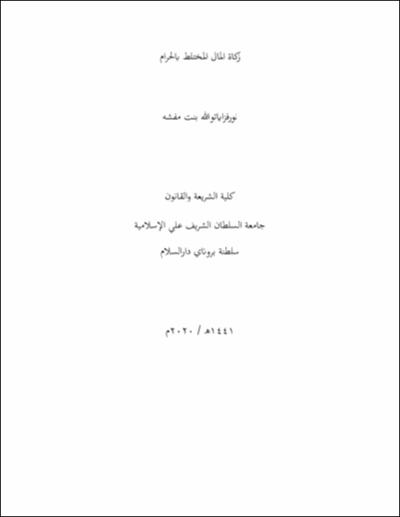زكاة المال المختلط بالحرا م

Date
2020Author
Nurfizayatullah binti Mafsyah
Abstract
It is well known that giving zakat is the third rule of the Islamic Pillars. And so, giving zakat is compulsory to be done by each and every single muslim. Allah SubhanahuWaTa’ala has commanded all fellow muslims to give out their alms because there are portions of other muslims’ share in every property that a muslim owned. This study discusses the topic of “Zakat al-mal mixed with the haram”, in which it contains two chapters. In the first chapter, the author will define the meaning of zakat in all aspect, and present the evidence contained in the Quran, the hadith of Prophet Muhammad Sallallahu ‘AlaihiWasallam, and the views or the perspective of jurists on zakat. In this chapter also the author explains about the types of zakat namely Zakat al-mal and Zakat fitr. Whereas in chapter two, the author explains the meaning of mal and describes the types of mal haram and presents views and opinions from the four jurists. Lastly, the author will explain how to dispose mal haram. This study uses discussion methodology and supervision from University supervisors. This study also contains descriptive methods. In the descriptive method, the author relies on a collection of reference sources, namely fiqh books that are closely linked to this title. In addition, author also obtain information through internet applications. This study aims to define and understand the meaning of mal haram and its divisions as well as ways to get rid of the mal haram. At the end of this study, the important point to be gained is thatmal haram is all the money that Allah prohibits a Muslim from possessing and using it. Zakat in only compulsory to be paid from mal halal. Mal haram is not compulsory for zakat. It is the duty of the owner of the mal haram to repent and release himself from the mal haram.Repentance from possessing mal haram other than regretting the prohibition, is to dispose it. In Shaa Allah. It is hoped this academic writing will benefit the readers.
Collections
Alternative Title
Zakat Al-Mal Mixed with the Haram

